The PALAI Inc. Initiative: Advancing Organic Agriculture in South Cotabato
While the majority of farmers in South Cotabato struggle to transition to organic agriculture, a group of practitioners in the Municipality of Santo Niño have managed to thrive. This success comes despite the lukewarm support they initially received when they embarked on their organic farming journey in 1998.
The Peoples Action for Liberation Agricultural Industry Inc. (PALAI Inc.) has emerged as a champion of organic agriculture not only in Santo Niño but throughout the SOCCSKSARGEN region. However, serving as an advocacy group presents its own unique set of challenges.
“Identifying farmer groups that are engaged in sustainable agriculture is challenging. Adhering to its standards is equally demanding,” PALAI Inc. founding member Jethel Kapunan said.
Organic agriculture was first introduced in Santo Niño when a non-governmental organization initiated a project for the local farmers. This project provided them with opportunities in the form of technical and financial assistance. However, only a few farmers have continued with organic farming and maintained its standards consistently.
Among those who have adopted organic agriculture are the members of PALAI Inc., for whom this practice has become a way of life.
“We fully embrace it because we have seen that sustainable agriculture is not just on an economic scale. If you think about it, it has multiple benefits. It’s like hitting three birds with one stone,” Kapunan said.
The group identified numerous opportunities in organic agriculture. They view it as a holistic approach that can address several pressing issues, including food insecurity, climate change, and environmental degradation. They believe that by practicing organic farming, they are contributing to the solutions to these problems.
Aiming to be fully organic-certified
Before, organic agriculture was not widely accepted. The majority of farmers were accustomed to conventional agriculture, which involves the use of synthetic fertilizers and pesticides. The aggressive marketing strategies of chemical companies made it challenging to transition to organic practices. As a result, farmers often became reliant on these synthetic inputs to enhance their farm productivity.
The Philippine government enacted the Organic Agriculture Act of 2010, also known as Republic Act No. 10068, to foster the practice of organic agriculture. This law aims to enhance soil fertility, boost farm productivity, and mitigate environmental degradation. Additionally, it seeks to safeguard the health of farmers and consumers, conserve natural resources, and reduce reliance on imported farm inputs.
The Act was amended by Republic Act No. 11511 to make certification of organic produce by farmers and fishermen more accessible and affordable. The amendment also encourages the participation of indigenous organic farmers in promoting their sustainable practices. It further promotes community-based organic agriculture systems, which include farmer-produced organic soil amendments, bio-control agents, and other farm inputs.
An educational campaign was launched nationwide to promote organic consumption and boost local organic production.
Republic Act No. 11511 establishes a Participatory Guarantee System (PGS), a locally-focused quality assurance system developed and practiced by those engaged in organic agriculture. Built on trust, social networks, and knowledge exchange, the PGS is used to certify producers and farmers as practitioners of organic agriculture.
The law also creates the National Organic Agriculture Program-National Program Coordinating Office (NOAP-NPCO) to manage the National Organic Agriculture Program. It restructures and empowers the Bureau of Agriculture and Fisheries Standards (BAFS), which provides technical assistance to the National Organic Agriculture Board (NOAB).
The NOAP-NPCO formulates and updates standards for organic agriculture accredits Organic Certifying Bodies, and conducts inspections to ensure compliance with the Philippine National Standards for organic agriculture.
PALAI Inc. is considered a PGS group in South Cotabato. Recently, they became the first accredited Participatory Guarantee System-Organic Certification Body (PGS-OCB) in Region XII. Receiving accreditation as a PGS-OCB signifies not only compliance with rigorous standards but also a validation of their integrity and the product’s credibility.
The group has also been awarded the Participatory Organic Certificate (POC) by the BAFS. This certificate serves as proof that a core PGS group, or a farmer who is a member of an accredited PGS group, complies with the requirements, standards, and norms of organic farming/agriculture.
This remarkable achievement marks a pivotal moment in the region’s organic farming landscape. This success is also a credit to the support of the Organic Agriculture Program of the Department of Agriculture Regional Field Office (DA-RFO) XII and the Agricultural Training Institute-Regional Training Centre (ATI-RTC) XII.
The core PGS group, composed of five members from PALAI Inc., has been authorized to provide organic certification to organic farming practitioners within the province of South Cotabato. The scope covers Crop Production (CP), Animal Production (AP), and the Processing of Organic Milled Rice (PR).
The Organic Agriculture Program of DA-RFO XII is in line with the National Organic Agriculture Program in the Philippines. It is a comprehensive initiative that not only promotes organic farming practices but also aims to enhance farm incomes, improve health, protect the environment, and increase resilience to climate change.
The program also upholds social justice and provides production inputs and training. It is a testament to the region's commitment to sustainable and competitive organic farming, backed by the support of various stakeholders.
PALAI Inc. aspires for all its members to achieve full certification as practitioners of organic agriculture. The majority of their members are small landowners. Their status as an organic certifying body has inspired their members to persevere in their pursuit of full certification.
This recognition also serves as a beacon of inspiration for other organic practitioners in the region to apply for PGS-OCB status. As per R.A. 11511, it is deemed ideal for each province or town in a region to have at least one PGS-OCB to aid in the implementation and promotion of organic agriculture.
The rise of organic agriculture
Organic agriculture in the Philippines has seen significant growth over the years. The latest statistics indicate that a minimum of 107,911 hectares of agricultural land in the country has been transitioned to organic farming, marking a 400-percent surge between 2011 and 2015. The Philippine Information Agency reported that the number of organic farmers has risen to at least 43,000, a significant increase from the 9,000 recorded in 2011.
The local market is supplied with a variety of organic food products including rice, corn, fruits, vegetables (both fresh and processed), root crops, soybeans, honey, and livestock. For export, the country produces organic pineapples, bananas, banana chips, sugar (muscovado and coconut), coffee, coconut vinegar, coconut oil, banaba leaves, and herbs. The primary markets for these products are the US, Europe, and several Asian countries, including Japan.
Negros Island is considered as the Organic Food Bowl of Asia. It is a leading producer of these exported organic food products. The province has been championing organic food production since the 1980s and has prohibited the entry of any GMO food since 2007.
Negros Island (Negros Occidental and Negros Oriental) has shown the rest of the Philippines the pathway to successful organic farming. According to DA, about 32,000 hectares of the 633,000 agricultural land area in the region were already converted into organic agriculture.
The province of Negros Occidental, which is known for sugar, aimed to be the organic farming capital of the country.
DA is actively urging farmers to adhere to the Philippine National Standard on Organic Farming. This adherence will enable them to gain certification as organic practitioners, thereby facilitating their products' entry into both domestic and international markets.
Nevertheless, the number of certified organic operators in the Philippines remains low, despite the increasing popularity of organic farming. This can be traced back to several deterrents such as the high costs associated with certification, stringent soil amendment requirements, and the expenses involved in fertilizer trials.
In SOCCSKSARGEN, the organic certification for PALAI Inc. was not a swift one. This was due to a comprehensive series of training and evaluations they willingly undertook. Their determination proves that any organic practitioner can successfully navigate this rigorous process. Their achievement stands as an inspiring example for others in the field.
"Initially, the government faced challenges in implementing organic agriculture nationwide. We were so accustomed to conventional farming that we heavily relied on synthetic inputs. However, public awareness of organic agriculture has increased significantly due to educational initiatives," stated Joffrey Frinal, a member of the PALAI Inc. certification committee.
Frinal represents PGS Pilipinas in the NOAB. PALAI Inc. is a member of PGS Pilipinas. Their group acts as a representative of the organic agriculture movement in the province of South Cotabato.
PGS Pilipinas is a network in the Philippines advocating for the Participatory Guarantee System (PGS), an affordable certification for small-scale organic producers. Launched by DA in 2021, PGS is a locally focused quality assurance system for organic agriculture.
It aims to reduce the cost of organic certification, involve small farmers and fisherfolk, and increase the local availability of certified organic products. The secretariat of PGS Pilipinas is led by MASIPAG.
He revealed that in the past, there was no well-defined market for organic agriculture. The majority of farmers were compelled to negotiate with rice traders who often undervalued their organic rice. Commonly, their organically grown rice would be combined with conventionally grown rice. This practice left the farmers, who were dedicated to organic farming, feeling disheartened.
Frinal also conveyed that agricultural production loans, previously provided by certain NGOs, had inspired over 100 farmers to delve into organic agriculture in their municipality. However, as time progressed, only a handful remained. The members of PALAI Inc. were among the survivors and they persist in their advocacy.
Fueled by their passion and unwavering commitment to organic farming, they successfully established their market. They cultivated a loyal customer base, or "suki", who regularly purchase their harvested rice.
Frinal and his team were motivated to adapt and promote organic agriculture due to the numerous benefits they observed. They can confidently assert that the food they consume is safe and nutritious. Additionally, they contribute to environmental protection. They are grateful that the Philippine government is recognizing the importance of organic agriculture in the country. However, they believe that more efforts are needed to fully integrate it into public consciousness.
Organic agriculture in SOCCSKSARGEN is receiving active promotion and support. For instance, the DA-RFO XII takes the lead in organizing the Regional Organic Agriculture Congress (ROAC).
The congress aims to provide updates on the programs and projects implemented in the region, as well as their impact on the industry. Furthermore, it serves as a platform for sharing and learning about innovative practices in organic farming, including its associated technologies and strategies.
For Frinal, breaking through the entrenched culture of conventional agriculture among local farmers presents a significant challenge. However, their group remains optimistic that the merits of organic agriculture will gain wider recognition. He emphasized that even modest, small-scale sustainable farming practices can make a meaningful contribution.
PALAI Inc. aspires to make a significant impact through their contributions. The realization of their vision for organic agriculture hinges on the collaborative efforts of local governments, government agencies, farmers' groups, and NGOs. The development and implementation of relevant local policies and programs are crucial to enhance local appreciation for, and adoption of, organic agriculture within the region.
“You cannot convince a person to go organic if you are not a practitioner,” said Frinal.
Their pioneering initiative is not only a promising beginning, but also a source of inspiration for many farmers in the near future. PALAI Inc. harbors a vision of transforming the Municipality of Santo Niño into the organic agriculture capital of South Cotabato province.
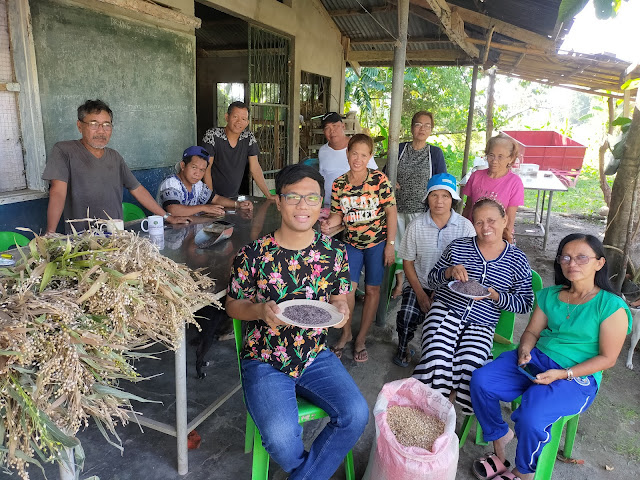

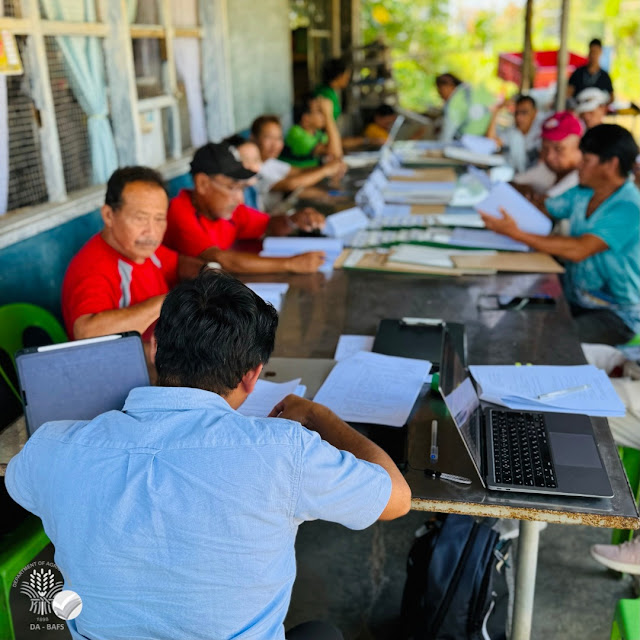
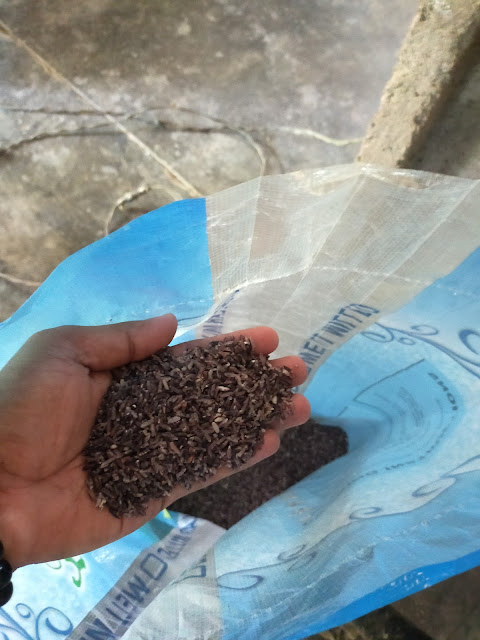
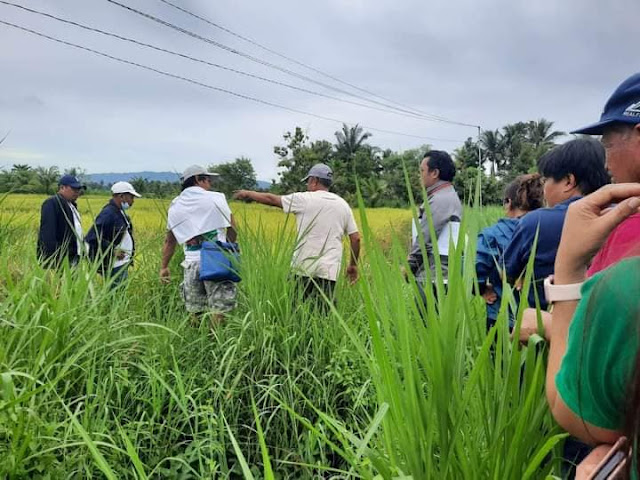

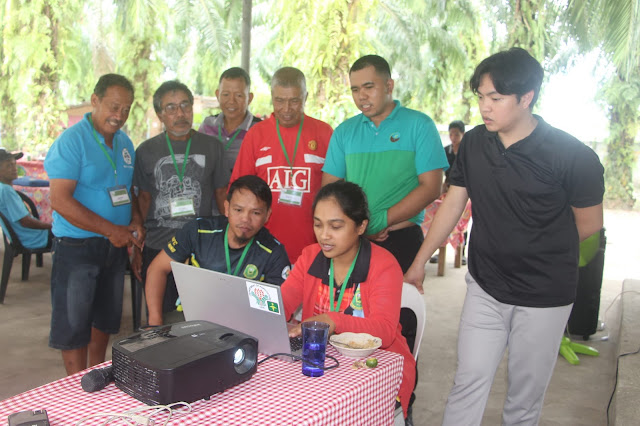



Comments
Post a Comment
The author encourages readers to post sensible comments in order to have meaningful discussions. Posting malicious, senseless and spam comments are highly discouraged.
Thank you for reading Yadu Karu's Blog.